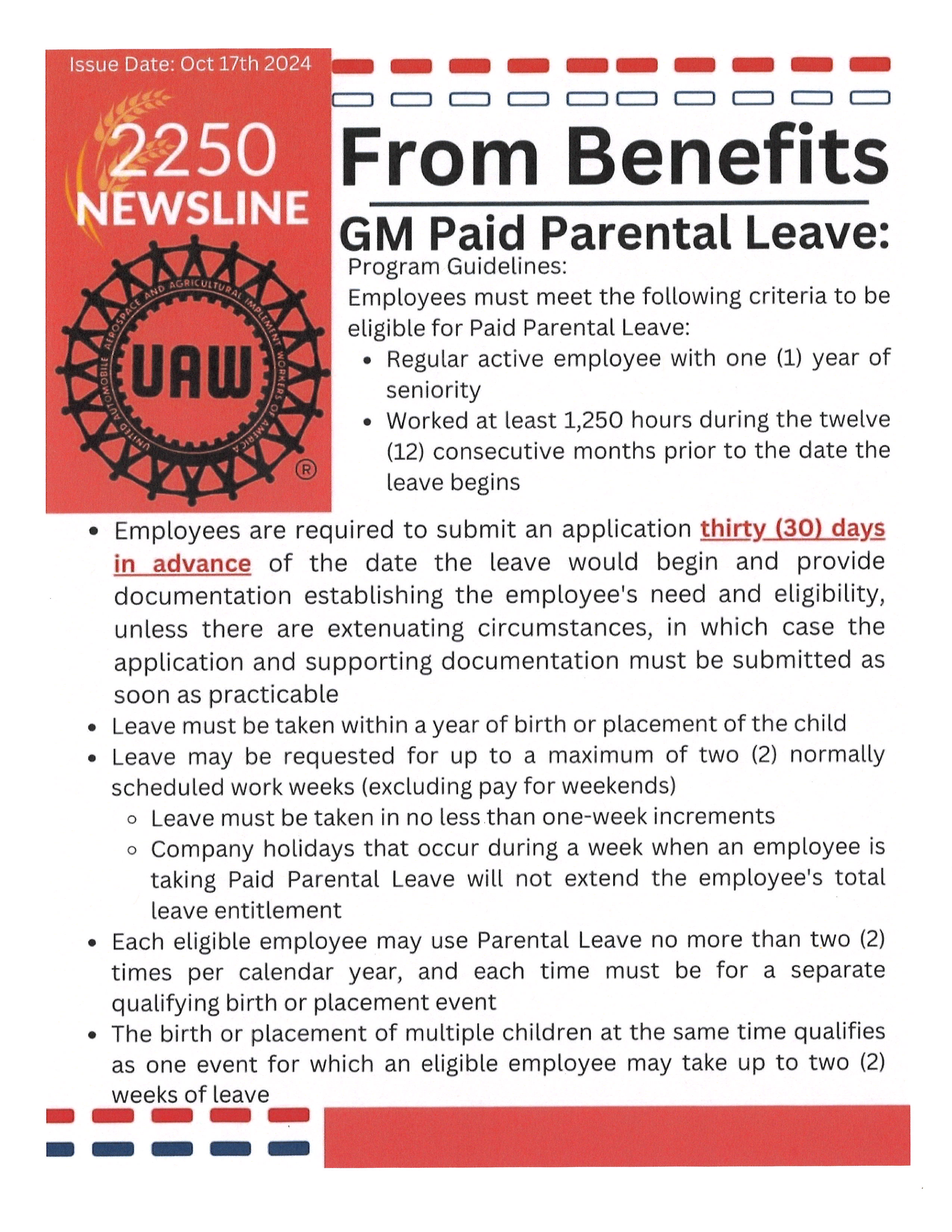-
You Can Help a Kid This Holiday Season! - 2 days ago
-
November Union Meeting! - November 14, 2024
-
Video: Why American Cars Are So EXPENSIVE… - November 14, 2024
-
SAP Phase 2 Is Here! - November 13, 2024
-
Tax Cuts For The Rich Create Debt, Division, and Despair - November 9, 2024
-
Pro-Worker Referendum For Minimum Wage and Paid Leave Were Winners This Election - November 8, 2024
-
New Retiree Recognition Dinner next Tuesday November 12, 2024! - November 7, 2024
-
Sunday Guest Opinion: We Must Limit The Power of Corporations - November 3, 2024
-
Cookies With Santa! - October 31, 2024
-
Adopt-a-Child Bake Sale - October 31, 2024
When Do You Need A Worker’s Compensation Attorney?
From Worker’s Compensation Attorney Mike Goldberg….
Do You REALLY Need an Attorney When You’re Injured on the Job?
February 2023
Do you always need a lawyer if you’re injured on the job?
The answer is . . . it depends.
Here’s a familiar scenario: I receive a phone call from an injured worker who states, “I don’t think I need legal help, but I’m calling for your advice.”
The caller goes on to say that their company (really, the insurance company) has offered to settle the claim and there’s no need for the worker to get an attorney involved. My response is almost always, “I bet the company would like that to happen!” You see, it’s the rare case that settles fairly for the injured worker without an attorney’s help.
After discussing the offer with the caller, I then explain how workers’ compensation works and what the company is trying to do: avoid costly medical bills now and potentially in the future. By jumping at the company offer, a worker will almost always lose benefits and certain rights if they don’t have legal help. The exceptions are minor injury claims. I find those are treated fairly by companies and an attorney isn’t needed.
But in the case of significant injuries, especially those that need ongoing care, companies generally have no interest in doing what’s right for you. In a case like this, you should never, ever just take the money they offer. To be very clear, the employer is never going to represent your interest and is not obligated to explain any of the rules or the benefits you may be entitled to get from your claim. The insurance company hired by the employer has one job: pay as little as possible on any type of case. If you fail to understand the rights you have in a case, you’re likely to waive benefits you deserve.
So that you don’t walk away from benefits you should receive, here’s what you need to do to manage your claim in four simple steps.
Step 1: Be Released from Medical Care
Before you consider an offer from the employer, be sure you’ve completed all medical care.
Step 2: Review All Medical Records from your Care
Once your care is complete, you’ll need to obtain and review all your medical records to understand the exact care you received, including notes from your operation(s) or other documents. At this point, you must decide whether you’ll need future care, or any follow up visits because you waive those rights when you resolve a case too soon. If you determine you’ll need future care or that you may have a future issue, you’ll need to discuss with the employer how you’ll get these benefits.
Step 3: Understanding How Permanent Partial Disability Benefits are Calculated and What a Low Rating Means
Benefits are based on a formula that includes your wage history and a determination of the disability percentage of a particular body part. The percentage is usually based on a disability assignment from the treating workers’ comp doctor that’s included in their report to the employer. In my 30-plus years of doing this work, I can safely say the rating will be low, which helps the employer but doesn’t help you. You have a right to appeal a low rating to get a determination from a doctor of your choosing. But that means finding a qualified doctor and arranging to get a new assessment. This is difficult to do without legal help.
Step 4: Seeking Court Intervention
The next step is to seek Court intervention to help move this matter along. I don’t recommend doing this on your own as the employer has legal guidance. You may believe that you know all that’s needed to deal with your case simply because it’s like (or worse than) another employee’s case but, it doesn’t matter. Every case is unique, and the employer’s goal is to pay out as little money as possible.
In this step, you’ll have to appear in court on your own and deal with the issues involving your claim directly with the employer’s attorney. They won’t help you if you have questions; they don’t represent you. Plus, you’ll need to understand all the ins and outs of the legal arguments presented and how disability or any unresolved issues are being decided.
Why Risk It?
Getting what you deserve when you’re injured on the job isn’t easy or for the faint of heart. Can you do it on your own? Yes. But you will not get the benefits you deserve.
Having a trusted attorney doing all the fighting for you, so you can focus on healing, ensures the process will proceed correctly and you’ll end up better off financially. Sure, there’s a cost for this service, but having the peace of mind in knowing someone has your back and is doing the dirty job of dealing with the employer’s attorneys is worth it.
Bottom line, get help and support or at least advice on your case before you simply resolve the claim only to find out later you didn’t get everything you should have received.




















